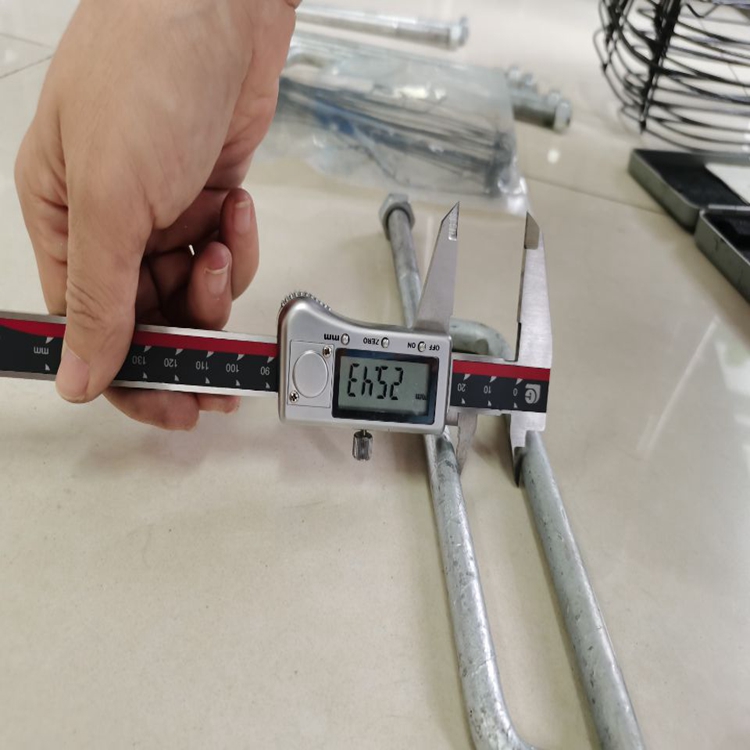Understanding CE Certification for ASTM F1554 Grade 36 Anchor Bolts and Their Applications
Understanding CE Certification for Anchor Bolts Focus on ASTM F1554 Grade 36
Anchor bolts are critical components in various construction applications, providing the necessary anchorage for structural elements to withstand various loads. Among the specifications governing the production of anchor bolts, ASTM F1554 is particularly significant, especially the Grade 36 variant. In addition to compliance with ASTM standards, obtaining CE certification for these products adds another layer of credibility and assurance of quality for manufacturers and end-users alike.
What is ASTM F1554?
ASTM F1554 is a standard specification for anchor bolts that covers various grades of steel, suitable for use in concrete foundations, structural applications, and more. The standard outlines the mechanical properties, chemical composition, and manufacturing processes required to ensure the anchor bolts can effectively resist tension, shear, and torsional loads.
Grade 36, as stipulated in ASTM F1554, indicates that the anchor bolts are made from carbon steel and possess a minimum yield strength of 36,000 psi (250 MPa). This makes them well-suited for applications where moderate strength is adequate. The use of Grade 36 anchors is common in both structural and non-structural applications, including the anchoring of machinery, guardrails, and even in precast concrete systems.
Importance of CE Certification
The CE marking is a symbol of safety and compliance with European Union (EU) legislation. Products that bear the CE mark meet the essential requirements of the applicable EU directives, which relate to health, safety, and environmental protection. For products such as anchor bolts, CE certification signifies that they have been tested and assessed to meet specific performance and safety standards.
Obtaining CE certification involves a rigorous assessment process. Manufacturers need to demonstrate compliance with the relevant EN standards, which may include performance tests, material properties checks, and evaluations of manufacturing processes. This not only ensures the quality of the anchor bolts but also promotes trust among users, particularly in the competitive European market.
The Intersection of ASTM F1554 and CE Certification
ce certification anchor bolts astm f1554 grade 36

For manufacturers of ASTM F1554 Grade 36 anchor bolts aiming to enter the European market, understanding the overlaps and requirements of both ASTM and CE certification is crucial. While ASTM F1554 provides a robust framework for the mechanical properties and manufacturing processes, CE certification verifies that the product meets EU safety and performance standards.
Manufacturers must ensure that their production processes adhere to both the ASTM specifications and the relevant EN standards, which may involve additional testing and documentation. This dual compliance can enhance product credibility and widen market opportunities across different regions.
Benefits of CE Marking for Anchor Bolts
1. Market Access CE certification is mandatory for many construction products in the EU. Possessing the CE mark allows manufacturers to market their anchor bolts within the EU without the need for additional certifications.
2. Quality Assurance The rigorous testing and evaluation process required for CE certification reassures clients and end-users regarding the safety and reliability of the anchor bolts.
3. Risk Mitigation By adhering to both ASTM standards and CE directives, manufacturers minimize the risk of liability issues associated with product failures, thereby protecting their reputation and financial standing.
4. Global Competitiveness CE certification in conjunction with ASTM compliance positions manufacturers favorably in the global market, making their products attractive options for international customers.
Conclusion
In conclusion, ASTM F1554 Grade 36 anchor bolts serve as essential components in a wide array of construction applications, providing the necessary strength and durability. The CE certification adds an invaluable layer of assurance regarding the product's compliance with safety and performance standards within the EU. For manufacturers seeking to thrive in a competitive market, emphasizing both ASTM compliance and CE certification can significantly enhance their marketability and customer trust, ensuring the successful integration of their products into various construction projects worldwide.
-
The Ultimate Guide to Premium Quality Field Fence Solutions
NewsAug.12,2025
-
The Essential Guide to Premium Square Wire Mesh Solutions
NewsAug.12,2025
-
The Essential Guide to Hexagonal Wire Netting Farm Fencing
NewsAug.12,2025
-
Premium Continuous Deck Rail Slab Bolster Solutions
NewsAug.12,2025
-
High-Performance Aluminum Tie Wire Reel for Construction Applications
NewsAug.12,2025
-
Crafted Premium Galvanized Hexagonal Gabion Wire Mesh Solutions
NewsAug.12,2025














